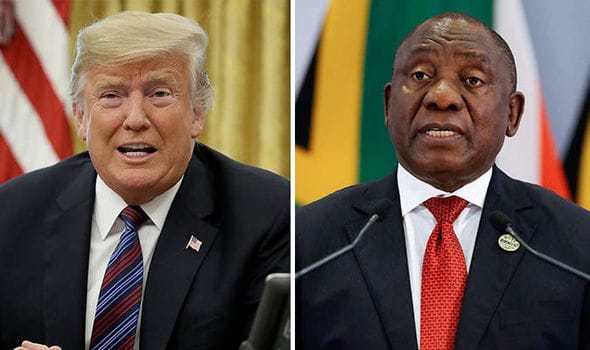South Africa is grappling with major economic and diplomatic challenges after U.S. President Donald Trump announced a 30% tariff on South African goods entering the United States, effective August 1, 2025. The move threatens duty-free access under the African Growth and Opportunity Act (AGOA), which currently allows more than 6,000 South African products into the U.S. market.
The South African government swiftly responded, disputing the tariff justification. In a statement posted on social media, the presidency argued that the U.S. decision was based on a “contested interpretation” of trade data, insisting that 77% of U.S. goods already enter South Africa duty-free and that the average import tariff stands at just 7.6%.
The tariffs are part of a broader U.S. trade crackdown that targets 14 countries, including several BRICS members and allies. The South African government emphasized that negotiations are ongoing, and President Cyril Ramaphosa expressed hope that a balanced trade agreement could still be reached.
Speaking from the BRICS Summit in Brazil, Ramaphosa criticized the U.S. administration’s approach, warning against punitive measures aimed at countries pursuing independent foreign policies. “There should never be vengeance or retribution against nations seeking cooperation and working for the interests of humanity,” he said, highlighting BRICS as a platform for reform, not confrontation.
Ramaphosa also noted that South Africa had made a clear proposal to the United States, which remains under review, and voiced optimism about finding common ground before the August deadline. “Everything is negotiable,” he remarked, suggesting that even hard deadlines can be re-evaluated in the interest of diplomacy.
Meanwhile, South Africa’s main opposition party, the Democratic Alliance (DA), called the tariff announcement a “crippling blow” to an already fragile economy. DA leader John Steenhuisen warned that thousands of jobs were now at risk in agriculture, manufacturing, and mining sectors, as the country battles one of the world’s highest unemployment rates.
He urged the ANC-led government to implement urgent structural reforms to protect the economy, including privatizing energy and freight sectors, improving port efficiency, and addressing governance failures. Steenhuisen also called for a shift from race-based policies to poverty-focused empowerment initiatives.
This latest tariff crisis follows mounting tensions between Pretoria and Washington, including disagreements over South Africa’s land reform law, its support for Palestine at the International Court of Justice, and its diplomatic relations with Iran. Earlier this year, the U.S. suspended financial aid to South Africa over these concerns.
As the August 1 deadline looms, both governments continue negotiations, but the future of South Africa–U.S. trade relations hangs in the balance, with billions in export revenue and thousands of livelihoods at stake.



